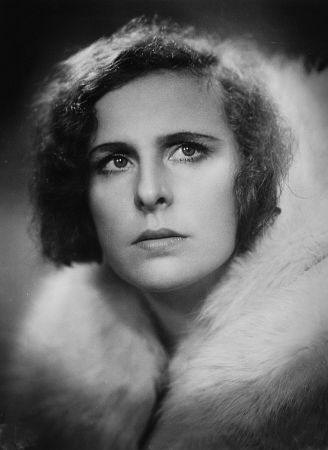In Remembrance: Leni Riefenstahl
 Leni Riefenstahl, the German silent film actress who became infamous as the
director of Triumph of the Will which documented a 1934 Nazi rally at
Nuremberg, has passed away on Monday September 8, 2003 in Pocking, Germany.
She was 101.
Leni Riefenstahl, the German silent film actress who became infamous as the
director of Triumph of the Will which documented a 1934 Nazi rally at
Nuremberg, has passed away on Monday September 8, 2003 in Pocking, Germany.
She was 101.
Born Helene Berta Amalie Riefenstahl on August 22, 1902, Leni Riefenstahl studied dance and was appearing in Berlin theatres by the age of 16. In 1924, while recovering from an injury that forced her off the stage temporarily, she saw the film Mountain Of Destiny by director Arnold Fanck. Fanck cast Riefenstahl in his next seven pictures. These films, known as “mountain pictures,” drew inspiration from Wagnerian opera and often featured strong willed, romantic heroines who were at harmony with nature. Riefenstahl frequently did her own, quite dangerous stunts. In 1932, she directed and starred in another mountain picture, The Blue Light.
It was around this time that Riefenstahl first heard a charismatic rising politician by the name of Adolph Hitler speak at a rally. She was so struck by his force of personality that she wrote him a letter and the two soon met. Although she initially refused, Hitler convinced her to make Victory of the Faith, a documentary of a Nazi Party rally at Nuremberg, in 1933. Riefenstahl wasn’t very happy with the results. A year later, armed with more resources, money and equipment, she tried again.
 The resultant film was Triumph of the Will. For the shoot,
Riefenstahl employed numerous techniques to get the footage she wanted. For
the panoramic view of the rally’s crowd she mounted a camera on a small
elevator attached to a flagpole behind the speaker’s podium. She frequently
used shots of Hitler speaking and shots of the party faithful watching that
were shot from below eye level. Though Riefenstahl had promised herself not
to make another party film, she shot the 18 minute documentary about the
Wehrmacht Day Of Freedom: Our Army in 1935.
The resultant film was Triumph of the Will. For the shoot,
Riefenstahl employed numerous techniques to get the footage she wanted. For
the panoramic view of the rally’s crowd she mounted a camera on a small
elevator attached to a flagpole behind the speaker’s podium. She frequently
used shots of Hitler speaking and shots of the party faithful watching that
were shot from below eye level. Though Riefenstahl had promised herself not
to make another party film, she shot the 18 minute documentary about the
Wehrmacht Day Of Freedom: Our Army in 1935.
She was contacted by the German Olympic Committee in 1936 to film the Summer Games to be held in Berlin that year. Faced with the task of covering 136 separate athletic events, she assembled a 170-member crew of cameramen and technicians.
All through her life, Riefenstahl would insist that Olympia was not a propaganda film for the Nazi party. However, there does exist some evidence that Goebbel’s Ministry of Propaganda indirectly financed the film. Still, the nearly three and a half hour feature only features approximately 15 seconds of footage of Hitler’s only visit to the stadium and also shows Jesse Owens four gold medal wins. Although critical reaction to Olympia was positive, the prevailing political climate did much to dampen the film’s box office.
During the German invasion of Poland in September 1939, she went to the front lines as a war correspondent but claimed the she soon left in disgust at Wehrmacht brutalities. As the war progressed, she turned her attention back to regular filmmaking, although she had many planned projects fall through. In 1944 she filmed the Eugene d’Albert operetta Lowlands in which she also starred as a Gypsy dancer. Extras for the film included Gypsies from a nearby internment camp though Riefenstahl claimed not to know anything of their detention.
After the war ended in 1945, Riefenstahl was declared by the Allies to be a Nazi sympathizer and never found work in film again. Although Lowlands saw in release in 1954, Riefenstahl remained in isolation for almost 20 years, living in Munich.
In the 1960s, she took up photography and had begun travelling. She made many trips into remote areas of the southern Sudan desert to live among and photograph the natives. In 1973 at the age of 71 she took up scuba diving. She published The Last of the Nuba and Coral Gardens, collections of her photographs.
She continued to work well into the 1990s. In 1993 she was the subject of the controversial three-hour documentary The Wonderful, Horrible Life of Leni Riefenstahl. She also had published her autobiography Leni Riefenstahl: A Memoir. In 1997, her first postwar German exhibition of her work was held in Hamburg.
Controversy over Riefenstahl’s work continued from after the fall of the Third Reich to the present day. Critics and film fans have continued to debate the merit of her work and whether or not it can be technically admired despite the use it was put to.
But the powerful influence of the imagery of Triumph of the Will is undeniable. Just a few years after the film’s release, Charlie Chaplin successfully parodied it in his comedy The Great Dictator. Stanley Kubrick evoked its memory with the shots of Roman gladiators in Spartacus. Both the awards ceremony at the end of the original Star Wars and some of the closing shots of armored soldiers boarding spaceships in Star Wars: Attack Of The Clones visually echo Triumph. Even Disney’s The Lion King used the stark imagery during Scar’s coronation ceremony. Some of the techniques and camera angles that she developed for shooting Olympia were later borrowed in the 1960s by the producers of the Olympics’ television coverage.